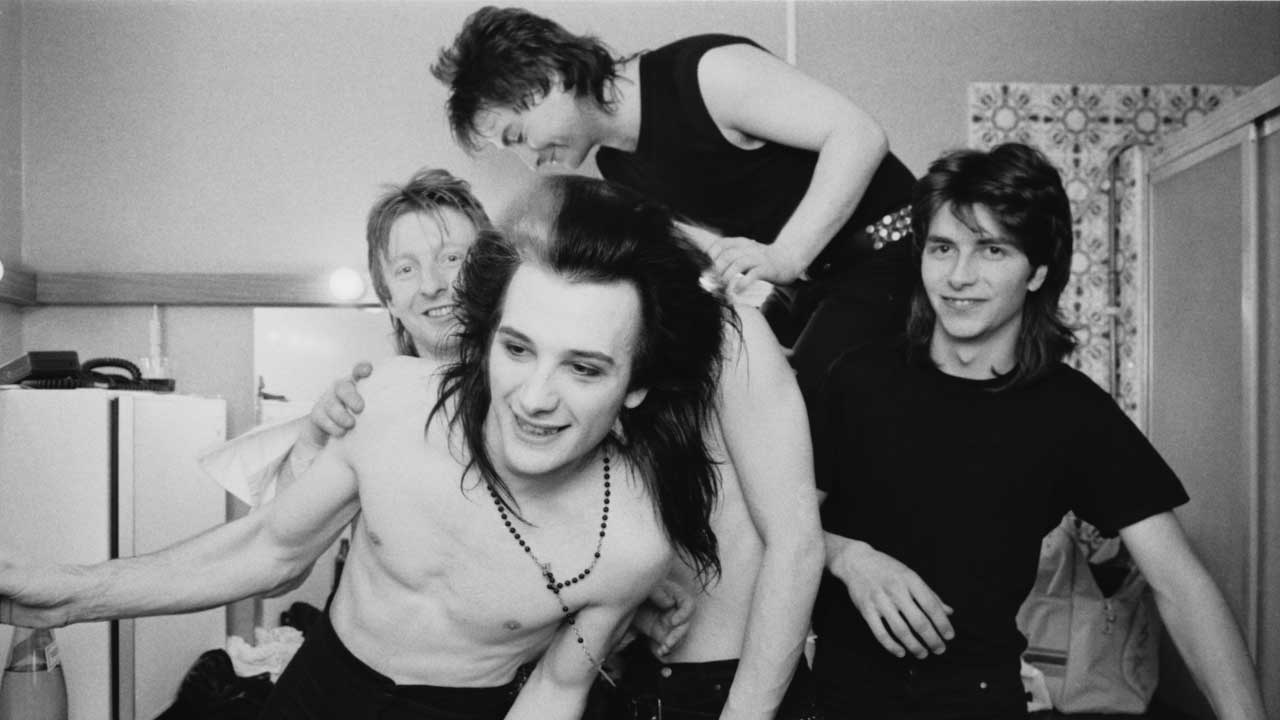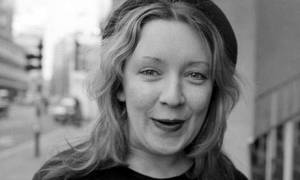Ten years after they released the UK’s first ever punk record – that great rowdy perennial New Rose – The Damned scooped the biggest hit single of their career. Eloise, which stormed the UK Top 3 early in 1986, crowned a remarkable comeback. After years of toil and trouble and rank bad luck, the band had returned as a force to be reckoned with. And Eloise was the latest, glittering proof.
Things could only get better. Or so it seemed. That summer they entered Denmark’s fabulously appointed Puk studio to record a new album that they hoped would build on their most recent triumphs.
“There we were with the world at our feet,” drummer Rat Scabies recalls today. “We’d got the success, the career… and we didn’t have a fucking clue what to do next. Tragic. We were in the most state-of-the-art studio in Europe, and standing there and going: ‘I don’t know what to play.’”
Eloise had brought increasing fame, work, travel and possibility. But it had also created higher levels of expectation, pressure, strife and burn-out. The song that should have launched a bigger, brighter future for The Damned led almost immediately to their decline.
It had all looked so different a year earlier. Back then, the band had had to prove there could be life after Captain Sensible, their departed guitarist and major songwriter. Scabies and singer/vampire Dave Vanian persuaded keyboard wizard Roman Jugg to take on lead guitar and writing duties as well, and with bassist Bryn Merrick in tow they’d recorded the Phantasmagoria album.
Released by MCA in July 1985 it was a resounding success and their highest-charting album, reaching No.11. Producer Jon Kelly had been aiming for a clean, poppy musical appeal, and The Damned, for their part, slipped easily into gothy black garments and longer, fluffier, sexier haircuts.
“You can lead a horse to water,” comments Scabies. “And we were thirsty.” They slaked their thirst with a string of minor hits from the album: Grimly Fiendish, Shadow Of Love and Is It A Dream all soon became live favourites.
“Suddenly there was money behind the group,” Scabies explains. “And it was: ‘Okay, boys, it’s time to take this seriously.’ There wasn’t the usual haphazard drunkenness; maybe it’s not as exciting as setting fire to the drums every night…
“Initially it was all good fun. We’d been accepted almost by a new audience, which was gratifying, cos we weren’t just dependent on the Smash It Up crowd. Not that we didn’t want them there as well, but we were managing to change horses and get away with it. The only way was up!” And that way up was Eloise, a cover.
“We knew we needed another single to carry through what we already had moving,” says Scabies, adding that it was Vanian’s ambition to record Eloise – a darkly melodramatic, orchestral epic written by Paul Ryan and made famous in 1968 by his twin brother Barry.
“Even back in ’76, in [punk fanzine] Sniffin’ Glue, in our very first interview, Dave said he wanted to record Eloise.” Scabies says. And it was worth the wait: “He wore it like a glove.”
The rest of The Damned “had a few runs at getting it right,” remarks Scabies. “It was quite challenging. There were so many parts to learn. And you couldn’t really change it very much. The arrangements and accents and dynamics of the song are very much in place, and the melody doesn’t mean anything without them.
“Roman did the proper keyboard parts and I did all the cool, exciting crashes with an Emulator II, a keyboard sampler, for the big, noisy orchestra stuff. Jon Kelly did a great job on the sound.”
But the joy attached to the band’s unprecedented success was soured by MCA’s refusal to shoot a video. “They were too mean!” Scabies thunders. “And [video director] Tim Pope had some great ideas – Dave dressed in drag, and horses crashing through stained-glass windows…”
There was another inescapable disappointment, Scabies confessing: “It was a little bit, ‘I wish we’d written it.’ But not just from a money point of view. But the cruellest curse of Eloise were the events the hit single set in motion. “The big worry then became: ‘Can we sustain this and keep on being creative?’ And it was difficult in a lot of ways.”
The Damned were constantly on the road, meeting the demands of their rising popularity, and they couldn’t afford time out to work on new material. At the same time, they weren’t bored or hungry enough to write creatively. They were getting used to being “a commodity”, and a little starry.
“We let ourselves get driven around, and complained about the sandwiches,” reveals Rat, insisting: “We deserved it. We did our years in the back of vans and being spat on.”
Still, they were becoming disillusioned with the lifestyle, the touring, MCA, the industry and each other. In Denmark, gathering to record Anything, they were clearly running out of juice. It would be another decade before the first of various re-formed Damned line-ups released any new material – and none, to date, has come close to catching the fleeting, flaming glory of Eloise.
Scabies: “After Eloise, we wanted an unbeatable classic pop song. We had three different careers over a long period – Brian [James] and New Rose, Captain and Smash It Up, and Roman and Phantasmagoria. Deep down, what we wanted was another New Rose or Smash It Up.
“We were always on the edges of being big, lots of people came to see us, we were always able and capable… and every time we managed to fuck it up.”
This feature originally appeared in Classic Rock 132, in June 2009. We celebrate Rock's Greatest Cover Versions in the new issue of Classic Rock - available now.

